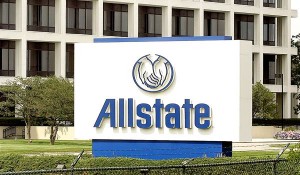Defense lawyer tries medical malpractice case in Frederick, Maryland. He loses big. $7 million verdict. Here’s what he says to the media after the verdict:
New Bad Faith Opinion | Difference Between California and Maryland
I’m glad to say that our firm has had several verdicts in recent years that exceeded the insurance policy of the at-fault driver. In almost all these cases – there is one exception – we made a demand for the insurance policy limits. Why? Because we knew they would not pay the policy limits, and we were trying to set up our bad faith case after an excess verdict.
Insurance companies have a duty to their insured to try and settle a case within policy limits if it is reasonable to do so. In every Maryland case, we have had, the “reasonable to do so” never gets flushed out because the insurance company does the right thing and pays the policy.
Continue reading
Can I Make an Uninsured Motorist Claim Against a Taxi?
Can you make a UM claim against a taxi?
Question: I am a New Jersey resident who was in a car accident taking a cab back to BWI airport. The taxi cab driver was probably speeding the accident was not his fault – someone just pulled out on us. I saw the whole thing. The driver who caused this mess had insurance with Maryland Automobile Insurance Fund which I’m told will have little insurance coverage. The taxi cab company told me they have no uninsured motorist insurance. Is this actually true? Someone told me that every car has uninsured motorist coverage and that the coverage limits are the same as the liability limits. Is this true?
What Does Allstate Pay Lawyers Defending Auto Cases?
The answer in Maryland appears to be around $135 an hour for a senior lawyer.
Here’s how I know. One of my colleagues here was in court yesterday and saw a motions hearing. This issue was unbelievably petty if I say so myself. Plaintiff’s lawyer failed to show for a deposition because he overslept, forgot, or something. Totally innocent. He said he was sorry. Allstate’s counsel – outside counsel, not in-house – wanted $500 in sanctions for having to appear at the deposition. Why so petty? I can’t tell you. But I know that while there are a lot of insurance defense lawyers that are wonderful people, it is fair to say that they blow past all other professions in the number of people per capita who would say, “I’ve enjoyed this dinner with you; now let’s go through this check line by line and figure out who owes what” after dinner with the neighbors.
Religion and Personal Injury Trials
 Three years ago when Reptile came out – the book that has revolutionized how many plaintiffs’ attorneys approach a tort case – I wrote what I thought was an interesting post about the use of religion at trial based on the research provided in the book. The premise was that the rules of Scripture are power rules that guide the thinking not only of the pious but command authority as the “ultimate rules” for not only the faithful but the agnostic and even atheists.
Three years ago when Reptile came out – the book that has revolutionized how many plaintiffs’ attorneys approach a tort case – I wrote what I thought was an interesting post about the use of religion at trial based on the research provided in the book. The premise was that the rules of Scripture are power rules that guide the thinking not only of the pious but command authority as the “ultimate rules” for not only the faithful but the agnostic and even atheists.
Can a Maryland Insurance Company Raise Your Rates for Making a PIP Claim?
Many of us fear – some irrationally – our car insurance rising. Most people assume that making a PIP claim will lead to an increase in your insurance premiums. In Maryland, they no longer can. This article explains our law.
Continue reading
Baltimore City Lead Paint Case Revived by Maryland High Court
The Maryland Court of Appeals issued an important opinion helpful for plaintiffs’ lawyers, albeit attorneys who are not on top of their game for getting their case ready for trial. I just got back from vacation last week and found it interesting enough to put down the 1,000 things that I have to do and read it.
Continue reading
New Maryland Court of Special Appeals Opinion: Business Organizations
Business organization law is not my wheelhouse. It is not something I blog about often. But the Court of Special Appeals just issued a new opinion regarding personal liability for directors of unincorporated businesses that I think has implications for tort lawyers (although probably not my firm).
This breach of contract case involves the PRC (Pikesville Recreation Council), an unincorporated, nonprofit organization. From what I can gather, PRC provided recreational and educational programs to residents in the Pikesville area and was funded mostly by the registration fees that the organization charged (think community-wide soccer tournaments, among other things). PRC also ran a number of preschool programs and employed teachers contractually to teach the children who registered.
Continue reading
Frivolous Lawsuit Sanctions | New Maryland Opinion
The Court of Appeals has issued an opinion regarding sanctions for bad faith claims that has a lot of lawyers on both sides of the “v” talking.
The case’s background is just plain goofy. Mr. W and Mr. G are neighbors who live in Montgomery County. Sometime in February 2000, Mr. W is shoveling snow in his driveway when a man comes up with a video camera and starts videotaping him as he shovels snow. The man with the camera is actually Mr. G, but because there’s a large camera in his face and he’s wrapped in winter clothing, Mr. W doesn’t recognize him. Mr. W says to the man with the camera, “Can I help you?” but he gets no response. Mr. W then sets down his shovel, walks toward the man, and tells him to stop videotaping. After that, Mr. W realizes the man with the camera is his neighbor, Mr. G, and at that point, Mr. W allegedly pushes the video camera out of Mr. G’s face. Obviously, these are neighbors with a history of bad blood.
- Sanctions for scheduling and cancelling — repeatedly — depositions
- Rule 11 sanctions for not conducting competent legal research
Attorney Ignores Liens, Maryland High Court Takes His License
The Maryland high court last week suspended an attorney indefinitely for failure to honor a lien against his client’s case. He has a right to reapply to the bar after 6 months.
Two clients had small injury cases that collectively settled for a little over $25,000. The Food Employees’ Labor Relations Association and United Food and Commercial Workers’ Health and Welfare Fund had a lien on the case. Unlike almost every other non-military lien holder, this union demands full payment of its lien with no reduction for attorneys’ fees.
It is a great strategy by the union to get all of its money back. It is a terrible strategy for helping its workers get compensation for their injuries. Because when most lawyers see these agreements, they run for the hills unless it is a catastrophic injury case. Why? Because it is hard for both the lawyer and the client to get paid. No one wants to take a case where no one walks away happy.
When I first started doing plaintiffs’ work, I couldn’t believe the union could do this. But there is a case square on point.
Anyway, the rest of the story writes itself. He does not pay the liens nor does he interplead the funds. He ignores request after request for payment of the lien for years. He finally puts his own money into it when I guess he realized it just would not go away.










